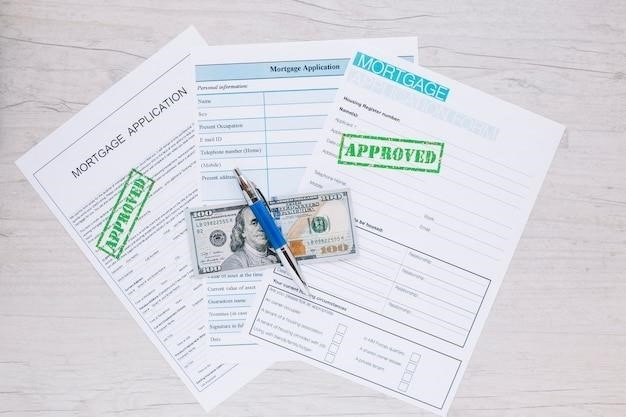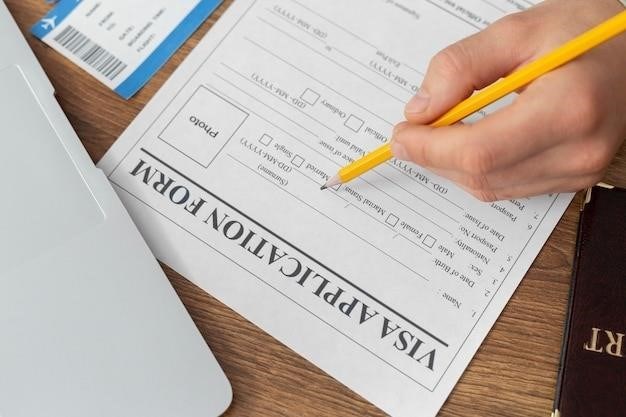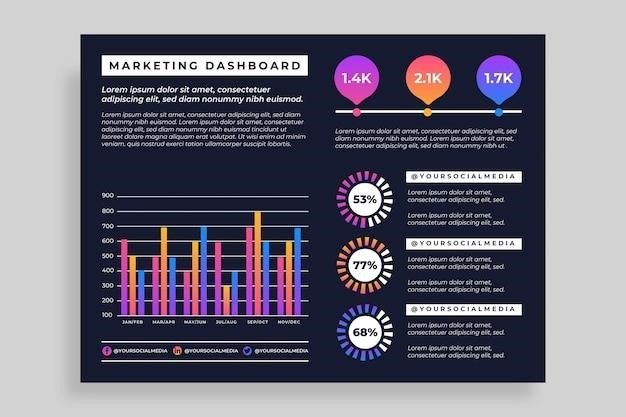Declaración Jurada de Aduana Honduras⁚ A Comprehensive Guide
This guide provides a detailed overview of the Honduran customs declaration process. Learn about online and offline submission methods, required information, associated fees, penalties for non-compliance, and contact information for Honduran customs authorities. We also address frequently asked questions and provide helpful resources.

Understanding the Honduran Customs Declaration
The Declaración Jurada de Aduana in Honduras is a crucial document for anyone importing or exporting goods, or even traveling into the country. It’s a sworn statement declaring the nature and value of goods being transported across Honduran borders. Accuracy is paramount; false declarations can lead to significant penalties. This declaration ensures compliance with Honduran customs regulations, facilitating smooth passage of goods and contributing to effective revenue collection. The form itself may be available in both digital and physical formats (PDF), offering flexibility to declarants. Understanding the specific requirements for different types of goods and accurately completing the form is essential to avoid delays and potential legal issues. The declaration process involves providing detailed information about the items being transported, including descriptions, quantities, values, and origins. Proper completion of this form is key to a seamless experience with Honduran customs. Failure to comply can result in delays, fines, and even legal action. Therefore, careful attention to detail is crucial when completing this important document.
Online Declaration Process⁚ A Step-by-Step Guide
Filing your Honduran customs declaration online offers convenience and efficiency. While specific steps may vary depending on the platform used, a general process typically involves these stages⁚ First, locate the official Honduran customs website. Next, navigate to the online declaration portal and create an account if necessary. You’ll then need to select the appropriate declaration type based on your situation (e.g., import, export, traveler’s declaration). The system will guide you through a series of fields requiring detailed information about your goods, including descriptions, quantities, values, and origins. Ensure accuracy in every field; mistakes could lead to delays or penalties. Upload any supporting documentation as required. Once you’ve completed the form, review it thoroughly for accuracy before submitting. The system will generate a confirmation number or receipt once the declaration is successfully submitted. Keep this for your records. You may be required to pay any applicable duties or taxes online. Finally, follow any instructions provided by the system for further steps, such as providing additional information or scheduling a physical inspection. Remember to retain all digital confirmations and receipts for potential future reference. Always consult the official website for the most up-to-date instructions and procedures.
Required Information for the Online Form
Completing the Honduran customs declaration accurately is crucial for smooth processing. The online form typically requests comprehensive details about the goods being imported or exported. This includes a precise description of each item, encompassing its nature, quantity, and value in US dollars. You’ll also need to provide the Harmonized System (HS) code for each item, a standardized international classification system for goods. Accurate HS codes are essential for correct duty assessment; Furthermore, the form will require information about the shipper or exporter, including their name, address, and contact details, as well as the consignee or importer’s information. Details about the means of transportation (e.g., vessel name, flight number) and the point of origin and destination are also necessary. Depending on the type of goods, additional documentation might be required, such as invoices, certificates of origin, or import permits. For personal effects, travelers may need to list specific items exceeding permitted allowances. It’s vital to have all necessary documentation readily available before starting the online declaration process to ensure efficiency and avoid delays. Remember, providing false or incomplete information carries significant penalties.
Frequently Asked Questions about the Online Form
Many individuals have questions regarding the Honduran customs declaration online form. A common query is about the required language for the form; it’s typically Spanish, but some systems may offer English options; Another frequent question concerns the handling of errors during form completion; most systems allow corrections before final submission. Technical issues are also a concern; if you encounter problems, contacting Honduran customs support is recommended. Questions about acceptable payment methods for associated fees (like the Servicio de Transmisión de Datos or STD fee) often arise; check the official website for current options. Many users seek clarification on the penalties for submitting inaccurate or incomplete information; these are clearly outlined on the official website and can include substantial fines or delays. Another question revolves around the possibility of saving a partially completed form; many systems allow this feature, but it’s crucial to note the specific guidelines for doing so. Finally, individuals often ask about the status of their submitted declaration. The online system usually provides tracking options to monitor the progress of their submission. Remember to consult the official Honduran customs website for the most up-to-date and accurate information.

Accessing the PDF Form⁚ Alternative Methods
While the online declaration is preferred, accessing a downloadable PDF form for the Honduran customs declaration might be necessary in certain situations. If the online system is unavailable due to technical difficulties or internet access limitations, you might need to explore alternative methods. One option is to directly contact the Honduran customs authorities. Their official website or physical offices may offer the PDF form upon request. Providing your specific needs and circumstances will help them guide you through the process. Another approach is to seek assistance from a customs broker or freight forwarder familiar with Honduran regulations. These professionals often have access to necessary forms and can assist with the completion and submission. Remember, using a third-party agent may incur additional costs. Searching online for “Honduras customs declaration PDF” might yield results, but always verify the authenticity of any downloaded form from unofficial sources to avoid potential fraud or outdated information. Always prioritize official channels for the most accurate and reliable forms. Remember to check the version date to ensure you are using the most current document; outdated forms may not be accepted. Using the correct form is crucial to avoid delays or penalties.
Penalties for Non-Compliance
Failure to accurately complete and submit the Honduran customs declaration can result in significant penalties. These penalties can vary depending on the severity and nature of the infraction. Minor errors, such as omissions of less critical information, might lead to warnings or minor fines. However, more serious violations, like intentionally misrepresenting the value or nature of goods, can result in substantial financial penalties. These penalties can be a significant percentage of the value of the goods in question or even lead to legal action. Furthermore, delays in processing are common consequences of incomplete or inaccurate forms. These delays can cause significant disruption to your travel or business plans and may lead to additional storage fees or other charges. In cases of smuggling or fraudulent activities, severe penalties including imprisonment are possible. The specific penalties are outlined in Honduran customs regulations, which should be reviewed carefully before submitting your declaration. It’s recommended to ensure complete accuracy and seek clarification on any ambiguous points before submission to avoid potentially costly mistakes. Consult with a customs broker if unsure about any aspect of the declaration to mitigate risks associated with non-compliance.
Customs Duties and Taxes in Honduras
Understanding customs duties and taxes in Honduras is crucial for anyone importing or exporting goods. These levies are imposed on imported goods to generate revenue for the government and to protect domestic industries from unfair competition; The rates vary significantly depending on the type of goods, their origin, and their value. Generally, Honduras employs a tariff system based on the Harmonized System (HS) classification codes, an internationally standardized system for classifying traded products. These codes determine the applicable duty rate for each item. In addition to duties, various taxes may apply, including Value Added Tax (VAT), which is a consumption tax levied on the sale of most goods and services. Other specific taxes may apply based on the nature of the imported goods. It’s important to consult the official Honduran customs website or a customs broker to determine the precise duties and taxes applicable to your specific shipment. Failing to account for these costs can lead to significant financial burdens and delays in processing your goods. Accurate assessment of these charges is vital for effective import/export planning and budget management. The Servicio de Administración de Rentas (SAR) plays a crucial role in managing and collecting these customs duties and taxes.
Exemptions and Allowances
Honduras offers various exemptions and allowances on customs duties and taxes, designed to stimulate economic activity and support specific sectors. These provisions often benefit certain types of goods, such as those deemed essential for national development or those imported for specific purposes. For example, there might be exemptions for goods used in agricultural production or for educational institutions. Specific exemptions might also be granted for humanitarian aid or goods imported for disaster relief. The eligibility criteria for these exemptions are clearly defined within Honduran customs regulations and often require supporting documentation. Personal exemptions for travelers entering Honduras are also commonly available, allowing individuals to import certain goods duty-free up to a specified value limit. This personal allowance typically covers items intended for personal use and not for commercial purposes. However, exceeding these limits can result in the imposition of duties and taxes. Furthermore, certain goods are entirely prohibited from entry into Honduras, regardless of any exemptions, due to safety, health, or environmental concerns. To understand the specific exemptions and allowances that apply to a particular situation, it is advisable to consult the official Honduran customs website or seek advice from a customs broker who can provide expert guidance on the complexities of Honduran customs regulations.
Contacting Honduran Customs Authorities
Effective communication with Honduran customs authorities is crucial for resolving queries, addressing concerns, and ensuring compliance; Several avenues exist for contacting them, each offering a different level of interaction and response time. The official website of the Honduran customs agency often provides contact details, including email addresses for specific departments or inquiries. This online platform might also include a frequently asked questions (FAQ) section, addressing common issues and providing readily accessible information. For more complex issues or urgent matters, direct phone contact might be necessary. The official website should list contact numbers for various departments and offices, enabling direct communication with relevant personnel. In-person visits to local customs offices are possible; however, it’s advisable to schedule an appointment beforehand, as waiting times can vary. This approach allows for detailed discussions and the submission of documents, such as supporting paperwork for exemptions or clarifications on specific regulations. Social media platforms are increasingly used by government agencies for communication and announcements. Checking the official social media pages of the Honduran customs agency can provide updates, announcements, and potentially a method for contacting officials through direct messaging or comments sections. Regardless of the chosen method, maintaining a clear and concise communication style, including necessary details and referencing any relevant documentation, will streamline the process and ensure efficient responses.
The Role of the Servicio de Administración de Rentas (SAR)
The Servicio de Administración de Rentas (SAR), or Tax Administration Service of Honduras, plays a significant role in conjunction with Honduran customs. While customs focuses on the physical control and regulation of goods crossing borders, the SAR is primarily responsible for the tax collection aspects related to imported and exported goods. The SAR’s involvement begins with the assessment of customs duties and taxes based on the declared value and classification of goods. They use the information provided in the customs declaration to calculate the appropriate tax liabilities. The SAR works closely with customs to ensure accurate reporting and payment of these taxes. They provide the legal framework and processes for tax collection, including methods of payment, deadlines, and penalties for non-compliance. The SAR also actively combats tax evasion and fraud related to imports and exports, working alongside customs officials to investigate and prosecute cases. Their role extends to issuing receipts and providing taxpayers with confirmation of payments. The SAR maintains a significant database of taxpayer information, facilitating efficient tax administration and supporting efforts to improve compliance. The collaboration between SAR and customs is essential for maintaining a transparent and efficient system for international trade in Honduras, ensuring the proper collection of revenues and supporting the country’s economic development. Individuals and businesses can access SAR’s online services to make tax payments, check their tax liabilities, and obtain information regarding tax regulations. This close collaboration is key to the smooth operation of Honduras’ international trade processes.
Declaración Regional Jurada del Viajero
The Declaración Regional Jurada del Viajero, or Regional Sworn Declaration of the Traveler, is a standardized form used in Honduras for efficient management of international trade, tax collection, and the protection of national security and well-being. This form is crucial for travelers entering or leaving Honduras, ensuring transparency and compliance with customs regulations. The form requires travelers to declare all goods they are carrying, including personal belongings, merchandise for sale, and gifts. Failure to accurately declare goods can lead to penalties, including fines and confiscation. The declaration aids in preventing the illegal importation of prohibited or restricted items, contributing to national security. The information provided on the form allows customs officials to quickly assess the goods and determine any applicable duties or taxes. The Declaración Regional Jurada del Viajero is designed to streamline the customs process, reducing processing times at border crossings. It assists in the efficient collection of revenue for the government. Both online and offline versions of this form may be available, offering travelers convenient options for completion. The use of this standardized form contributes to a more organized and efficient system for managing the flow of goods and people across Honduran borders, promoting transparency and accountability. It helps to maintain a secure environment while facilitating legitimate travel and trade. Accurate completion of this form is vital for a smooth and compliant travel experience through Honduran customs.
Servicio de Transmisión de Datos (STD) Fees
The Servicio de Transmisión de Datos (STD), or Data Transmission Service, fee is a crucial aspect of the Honduran customs declaration process. This fee, equivalent to US$5.00, is levied in Honduran lempiras for each merchandise declaration registered within the computerized customs system. It covers the cost of processing and transmitting the information electronically. This electronic transmission ensures efficient data management and facilitates quicker processing times for importers and exporters. The STD fee contributes to the modernization and maintenance of the Honduran customs infrastructure. It supports the investment in technology and personnel required for efficient customs operations. Understanding this fee is essential for accurate budgeting and cost planning when importing or exporting goods through Honduran customs. The fee is non-negotiable and must be paid alongside any other applicable duties or taxes. Transparency in the application and collection of the STD fee contributes to a more equitable and predictable customs environment. This enhances trust and cooperation between businesses and the Honduran customs authorities. Failure to pay the STD fee may result in delays in processing the declaration and potential penalties. The fee helps to offset the cost of maintaining the technological systems that support efficient customs processing and facilitates the smooth flow of goods across the Honduran borders. Accurate payment ensures compliance and prevents potential disruptions to the import/export process. Proper understanding and payment of the STD fee contribute to a more streamlined and effective customs system in Honduras.
Additional Resources and Support
Navigating the Honduran customs declaration process can be complex, but several resources are available to assist importers and exporters. The official website of the Honduran Servicio de Administración de Rentas (SAR) provides comprehensive information on customs regulations, forms, and procedures. This online portal often includes downloadable PDF versions of the necessary forms, simplifying the process of completing the required paperwork. Furthermore, the SAR website typically offers FAQs and helpful guides to clarify common questions and address potential challenges. For those requiring personalized assistance, consider contacting the SAR directly through their provided contact channels – email or phone. Their customer service representatives can offer support in completing the forms and understanding the specific requirements for your situation. Many private customs brokers operate in Honduras, offering their expertise to businesses. These brokers can guide you through the entire process, ensuring compliance and minimizing potential delays. While using a broker incurs an additional cost, it can offer significant peace of mind and efficiency. Additionally, various online forums and communities dedicated to international trade may offer valuable insights and advice from experienced individuals who have successfully navigated the Honduran customs system. Remember to always verify information obtained from unofficial sources against the official SAR website to ensure accuracy and compliance. Utilizing these combined resources will significantly enhance your understanding and success in completing the Honduran customs declaration process.

